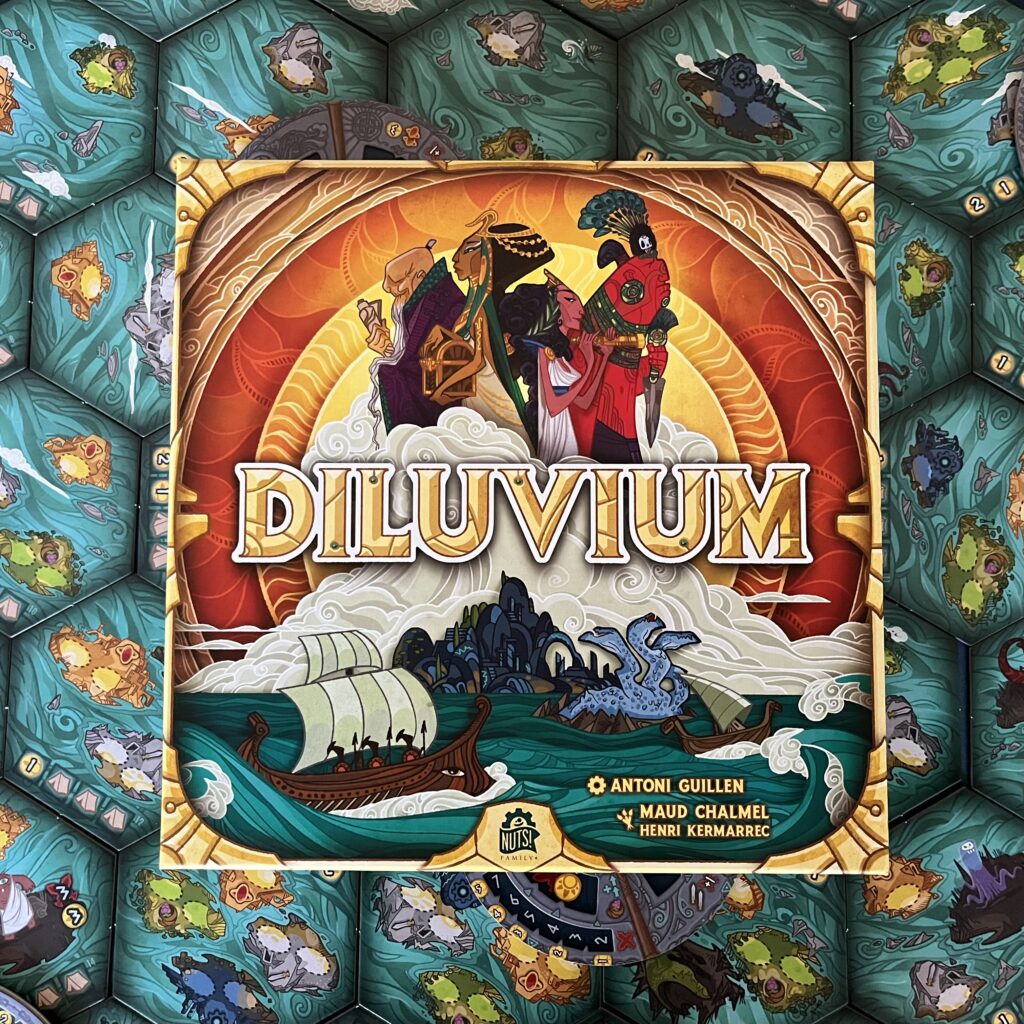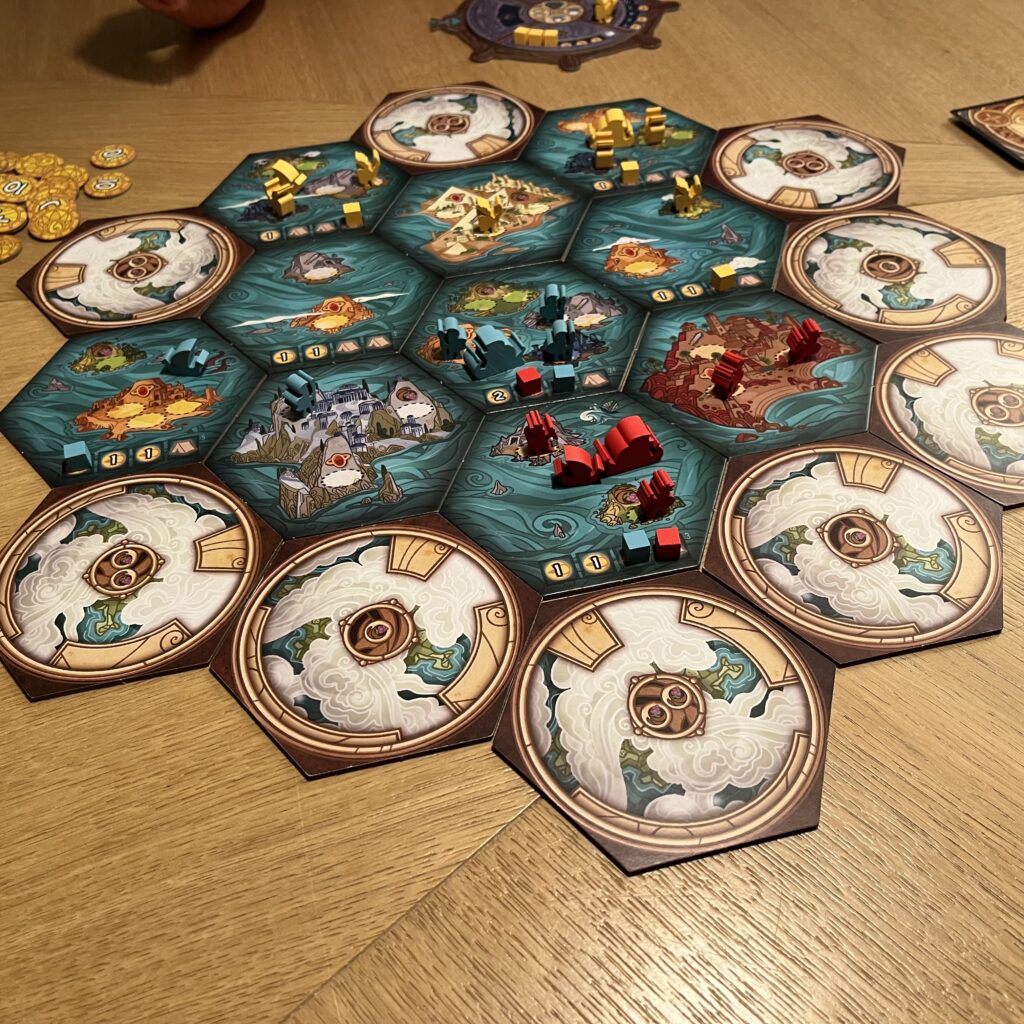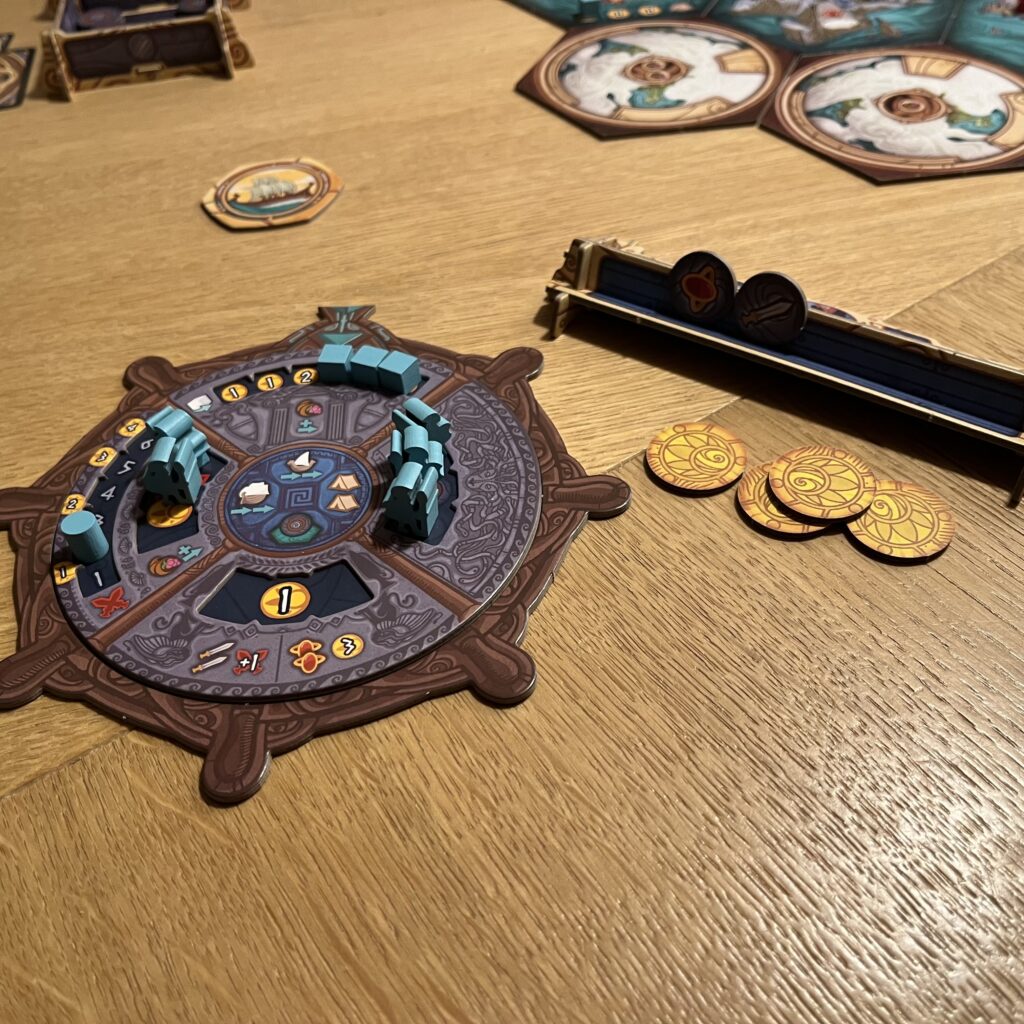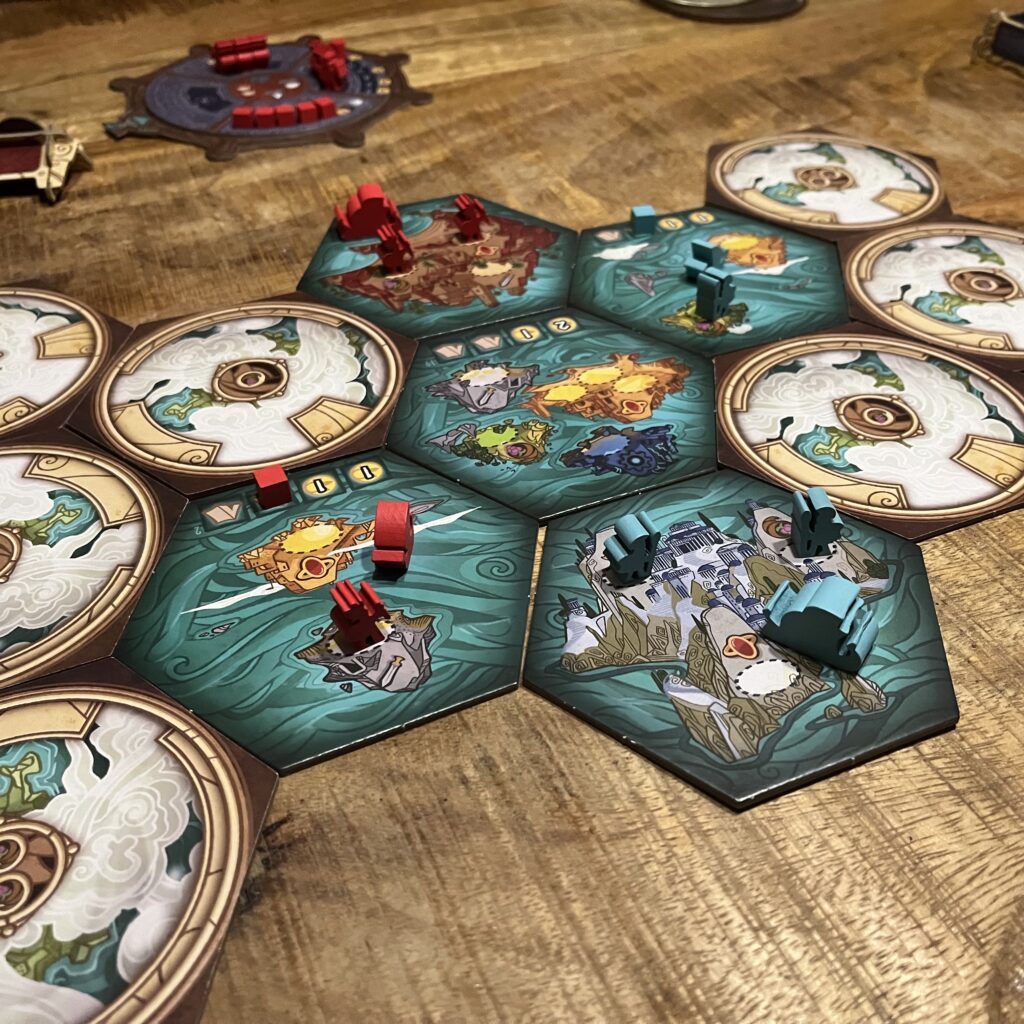After a flood, several empires went down. In a large ocean some islands were still accessible and the remaining peoples competed for power over them and the resources they could produce there. Do you manage to accumulate riches or does your luck go down with the Flood in the game Diluvium?
Background
What does Diluvium mean? Diluvium is term used in the 1800s to name the following concept: “widespread superficial deposits of sediments that cannot be explained by the historical action of rivers and seas.” In normal English (and thus less complete): types of landscapes we cannot explain. Diluvium was originally claimed to have been deposited by the action of extraordinary floods of enormous magnitude, especially the Biblical flood Noah had to deal with.

A flood also played an important role in the game of the same name. For months the heavens flooded the earth. Continents drowned, swept away by the voracious seas, while powerful empires tried to survive by building excellent ships. The golden age of ancient civilizations was coming to an end. In Diluvium, you assume the role of one of these civilizations as you try to gain control of the (scarce) remaining islands in order to exploit resources and win the most gold for you in a battle of Biblical proportions.
Gameplay
Diluvium is a manageable 4X game. We’ve had the pleasure of reviewing 4X games before and I’m sure this term is not unfamiliar to everyone, but still for the record I ask the following question: What is a 4X game? 4X stands for Explore (gradually players engage in exploring the game world), Expand (by building, players expand their game world), Exploit (throughout the game, players earn resources and other items); and Exterminate (players engage in defeating enemies). Civilization, Twilight Imperium and Eclipse are examples of 4X games, and there are plenty of games that build on this principle such as Scythe and also Uprising. Often 4X games are lengthy and strategic games. These games last entire (mid)days and in these games players have countless options.
Diluvium also features the four essential building blocks of the 4X, but as implemented as follows: explore, settle, produce, or engage. What makes the game extremely manageable and intuitive is that these concepts are also the four actions a player can choose from each turn. Each turn you turn your ship’s wheel to one of the four possible actions, in which, by the way, you may not repeat the action from your previous turn, and then you act out the steps of the action and any bonus actions.
At the beginning of the game, a world is prepared with different hexagonal tiles. The amount of tiles and the shape of the playing field depends on the number of players. In addition, there are different tiles and not all tiles are used, making the world slightly different each time for an extra load of game variation. Each player takes one of the double-sided game boards/shipwheels, resource racks and the wooden game pieces in their color. Next to the game board, a stack of coins, a stack of cards and four trays are placed. Three trays contain resources and one tray is used to discard resources. This is an important element of the game, because the resources in Diluvium are limited and as soon as one type of resource is exhausted by the players, the game ends. By the way, the player with the most coins wins the game.


What do the different actions do? With explore, you can send your scout ship out to explore. The ship may move two tiles, but you may discard additional food to move additional steps. You may move to closed tiles, but you must be able to discard enough food. If you reach a tile, where none of your cubes are yet located, you may place a cube. You receive a money bonus for placing a cube, but also a bonus depending on where you place the cube on the tile. This way you can earn even more coins, or place settlers.
Each tile contains islands and on some islands you can place settlers. With the settle action, you may place and/or move two settlers on islands on tiles where one of your cubes is placed and where another player’s warship is not present. Settlers take away from your ship board and if this leaves you with empty spaces on your board, you get bonuses for specific actions. If you place a settler on an island you immediately receive the resource or a card, depending on the island.
You can use the settlers to acquire resources with the produce action. Choose a tile with your settlers and produce all resources from the islands where your settlers are present. With food you can travel and explore islands, with crafts you can earn coins and with weapons you can increase your military power or become stronger in battles.
With the engage action you can provoke fights with other players or monsters. If you choose this action, you move your warship and possibly start a battle. In one battle with another player, players secretly select how many weapons to deploy and compare military power multiplied by the amount of weapons. If you fight monsters, your military power (along with any weapons) must also be higher. When winning battles, you also win coins and thus points.
Verdict
The box of Diluvium states a play time of 15 minutes per person. At first I didn’t believe much of this, because how can you play a 4X with such a short game duration, but it turned out not to be a lie. Diluvium is a smooth game in every way. Because the game is intuitive in terms of actions (partly because of the clear symbols, useful game components and logical consequences of the actions) the game allows itself to be explained quickly. In addition, the game is smooth because it feels very streamlined. There are a limited number of components, resources and actions, but plenty of choices, tactics and strategies.
Diluvium also includes a very extensive solo mode with a real campaign and stand-alone scenarios, giving the solo player endless fun.




